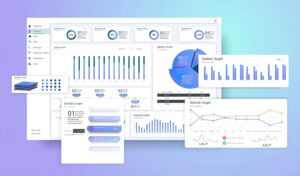Definition of Hire Purchase Software
Hire purchase software refers to a type of software that is designed to manage to hire purchase software agreements. Hire purchase is a financial arrangement where a person can buy a product or service by making installments over time, with ownership transferring to the buyer once all payments are made.
Hire purchase software is used by businesses that offer hire purchase agreements as a form of financing for their customers. The software allows them to track and manage these agreements, including calculating and collecting installment payments, generating invoices and receipts, tracking inventory, and managing customer accounts.

The hire purchase software may also have included features such as credit checks, automated reminders for late payments, and reporting tools to help businesses analyze their hire purchase software operations. By using hire purchase software, companies can streamline their operations, improve customer service, and reduce errors and delays associated with manual processes.
Benefits of Hire Purchase Software
Hire purchase software, a lease or financial management software, is designed to help businesses manage their leasing and financing activities. Here are some benefits of using hire purchase software.
- Improved Efficiency: Hire purchase software streamlines the entire leasing process, from creating lease agreements to collecting payments, which helps businesses operate more efficiently.
- Better Organization: The software provides a centralized location for all lease and finance information, making it easier for businesses to keep track of their assets, payments, and other vital data.

- Reduced Errors: With automated calculations and data entry, hire purchase software minimizes the risk of human errors, which can lead to costly mistakes.
- Enhanced Customer Service: The software allows businesses to easily manage customer information and respond to inquiries quickly, which can improve customer satisfaction.
- Real-time Reporting: Hire purchase software provides real-time reporting and analytics, allowing businesses to gain insights into leasing and financing activities and make informed decisions.

- Regulatory Compliance: The software helps businesses comply with accounting and regulatory standards, reducing the risk of fines or legal issues.
Overall, hire purchase software can help businesses manage their leasing and financing activities more effectively, improving efficiency, organization, and customer service while reducing errors and ensuring compliance with regulations.
Dis-Advantages of Hire Purchase Software
Hire purchase software, also known as installment software, is a type of software that allows customers to pay for goods or services in installments. While it has its advantages, such as allowing customers to make purchases they might not be able to afford otherwise, it also has several disadvantages. Some of these disadvantages include the following:

- High-Interest Rates: Hire Purchase software often comes with high-interest rates, which can significantly increase the purchase cost. This could make it difficult for customers to keep up their payments and result in them paying much more than they would if they had settled in total upfront.
- Hidden fees: Some hire purchase software providers may include hidden fees in their contracts, which can increase the overall cost of the purchase.
- Default Risk: Since customers are paying for goods are services over some time, there is a risk that they may default on their payments. This can result in the provider losing money and lead to legal action against the customer.

- Limited Flexibility: Customers may have different flexibility in terms of repayment than they would if they were paying for the goods or services upfront. This can be particularly problematic if their financial situation changes during the payment period.
- Credit Checks: Some hire purchase software providers may require customers to undergo a credit check before they are approved for financing. This can be problematic for customers with a poor credit history or no credit history.
